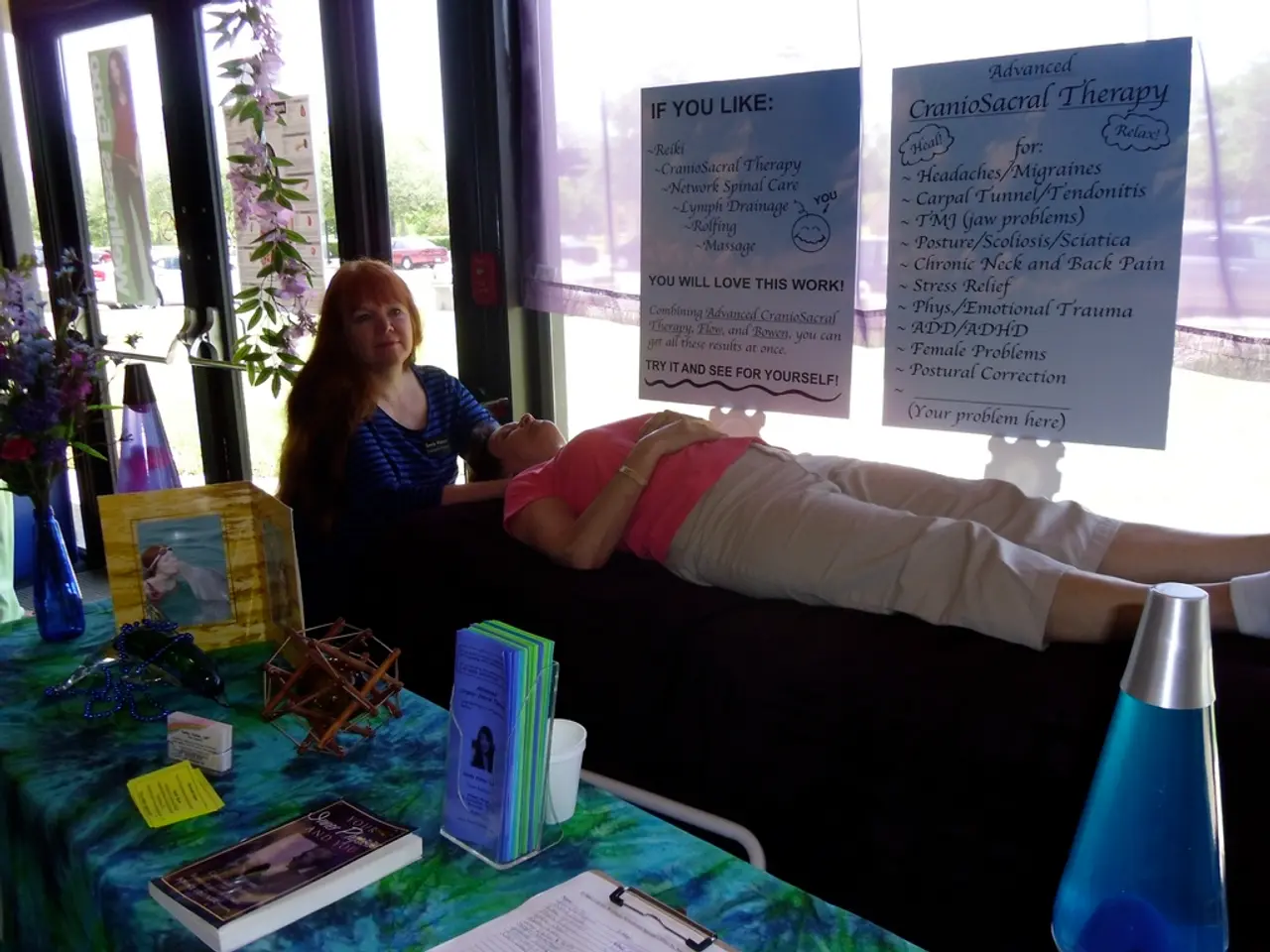Community colleges in Kentucky are striving to address the significant demand for mental health aid among their students
Kentucky Community and Technical College System (KCTCS) Launches Mental Health Strategy
The Kentucky Community and Technical College System (KCTCS) has announced a comprehensive Mental Health Strategy to address the high rates of mental health challenges among its students. The strategy, developed in partnership with The Jed Foundation (JED), The Healthy Minds Network, and the Council on Postsecondary Education, aims to create a community of care across all 16 campuses and ensure equitable access to appropriate mental health resources [1][3][4].
According to the 2024 Healthy Minds Study, 68% of KCTCS students showed signs of depression, 66% reported anxiety symptoms, and 86% experienced financial stress. Despite these high levels, only 27% of those screening positive for depression or anxiety were receiving therapy [1][4].
KCTCS President Ryan Quarles has prioritized mental health since taking on his role in 2023, acknowledging that half of all community college students in the U.S. struggle with mental health issues and that Kentucky has higher than national averages. The Healthy Minds Study, conducted between February 26 and March 18, 2024, presented KCTCS with a call to action, revealing high levels of stress, depression, anxiety, isolation, and academic impairment among students [4].
The Mental Health Strategy focuses on several key areas:
- Establishing a community of care across all 16 campuses.
- Protecting student mental health through evidence-based resources and policies.
- Expanding mental health services and peer wellness programs.
- Providing faculty and staff training on mental health issues.
- Addressing financial stress as a critical factor affecting mental well-being [1][3][4].
Each of the system's 16 colleges will have the freedom to customize its mental health approach since each campus population will have different needs. KCTCS plans to do more surveys of students and monitor what works to improve mental health [1][4].
The initiative represents a significant milestone for statewide mental health prioritization in higher education and serves as a model for community colleges nationwide [3]. The strategy also addresses other challenges faced by KCTCS students, such as financial and housing insecurity, food insecurity, and less access to medical care, which exacerbate mental health issues [1][4].
Wendy Johnson, a former respiratory therapy student, faced mild stressors during her time as a student due to being the oldest person in her classes and having children. Charlotte Boyd, a nursing student, suffered panic attacks during her time at Jefferson Community and Technical College and believes the mental health initiative would have helped her [2].
As KCTCS serves as the entry point for the vast majority of Kentuckians starting college, addressing mental health needs of its students is crucial to help them succeed in the long run and increase the economic prosperity of the state [5]. KCTCS colleges awarded around 10,546 associate degrees, 1,716 diplomas, and 31,062 certificates at the spring graduation ceremonies [6].
In addition to the Mental Health Strategy, KCTCS plans to apply for grant funding to support the mental health efforts, but for now, it comes out of the general budget [1]. The system is committed to ensuring that mental health is a priority and that students have the support they need to succeed academically and personally.
[1] https://www.kctcs.edu/about/news/kctcs-launches-mental-health-strategy-address-students-needs [2] Personal interview with Wendy Johnson and Charlotte Boyd [3] https://www.edweek.org/leadership/kentucky-community-colleges-announce-mental-health-strategy/2024/07 [4] https://www.healthymindsnetwork.org/healthy-minds-study/kentucky-community-and-technical-college-system/ [5] https://www.kctcs.edu/about/mission-and-vision [6] https://www.kctcs.edu/about/news/kctcs-colleges-award-record-number-of-degrees-diplomas-and-certificates-at-spring-graduation-ceremonies
- The Mental Health Strategy, launched by Kentucky Community and Technical College System (KCTCS), encourages a community of care across all 16 campuses to provide equitable access to mental health resources.
- The strategy, development of which involved The Jed Foundation, The Healthy Minds Network, and the Council on Postsecondary Education, focuses on protecting student mental health through evidence-based resources and policies.
- The initiative addresses not only mental health challenges but also financial and housing insecurity, food insecurity, and less access to medical care among KCTCS students.
- Addressing the mental health needs of students is considered crucial by KCTCS, considering community colleges serve as the entry point for a majority of Kentuckians starting college, with the aim to increase their success and the economic prosperity of the state.
- The Mental Health Strategy also advocates for expanding mental health services and peer wellness programs, as well as providing faculty and staff training on mental health issues.
- The health-and-wellness, education-and-self-development, environment, science, economy, and community sectors might find insights from KCTCS's Mental Health Strategy, given its comprehensive approach to student well-being and potential as a model for other community colleges nationwide.




